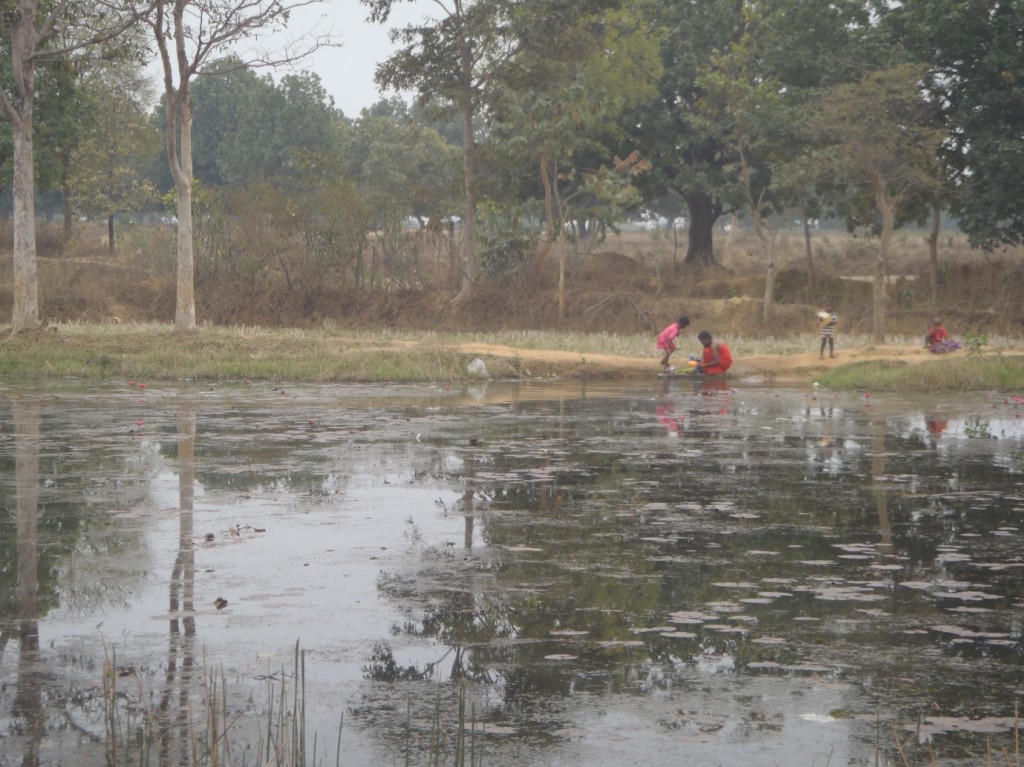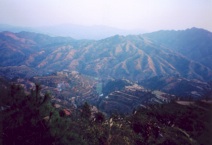In February 2013, I embarked on a field study with my colleagues at a NGO to understand and examine unjust and unlawful land acquisitions by private mining companies in the tribal belt of Raigarh in Chattisgarh during the last one decade. The experience was an emotionally shattering one for me and I decided to quit my research job at the NGO which involved working with highly vulnerable groups, and move full time into the academia where I would spend more time teaching. It was a journey of self-realisation which showed me that I needed more time and strength to face despair day after day and to prepare myself better for dealing with an unjust world where harsh realities stare you in the face when you enter the field, writes Kanchan Gandhi.
Much has been written on the subject of addressing emotions in the process of fieldwork. Moser (2008) argued that emotionally intelligent people (with high EQ) are able to engage much better with their research subjects and get much more in-depth insights into their lives and experiences than people with lesser emotional intelligence (EQ). Dickson-Swift et al. (2009) illustrate how emotions are a central part of social research by giving examples of researchers who openly exhibit their emotions in contrast to others who hold back their emotions while working with people who were experiencing emotions. They explain how some researchers felt that it was alright to cry if they felt emotionally overwhelmed while others felt that it was irrational or inappropriate to do so. They explain that the emotional aspects of doing fieldwork are seldom written about since university cultures have so far not been very supportive of the same and most often researchers rely on informal support systems such as friends, family and peer-group to discuss the emotional aspects of their research.
More recently Davies and Spencer (2010) argue that denying emotion altogether does not necessarily lead to better research and that emotion is not antithetical to thought or reason, but is instead an untapped source of insight that can complement more traditional methods of anthropological research. Intense emotional experiences are likely to happen while working with marginalised and disadvantaged groups of people. For example Arditti et al. (2010) describe the experiences of conducting research in a prison setting where researchers may feel intense emotions such as anger and sadness that may have a disturbing impact on them. In their research the injustice in the harsh behaviour of the jail authorities towards the prisoners caused anger among the researchers. The social stigma attached with certain groups such as the prisoners, the homeless and the destitute further stimulates the sensitivity of the researchers as they transform from objective observers to subjective participants in the research process. Often researchers try to place themselves into the research subject’s position and try to imagine what life would be like to be in that place.
In this brief I am going to talk about my own emotional upheavals and break-downs during development fieldwork that I did as a part of my research work with an NGO. Fieldwork for me became a process of not only understanding the “deprived other” but my own self, as I was not able to handle misery beyond a point which led me to change my career path from working in an NGO for two years to becoming a full time academic.
After completing my PhD from the National University of Singapore in May 2011, I decided to work in an NGO which had always been my dream and passion. The NGO that I joined did advocacy and direct implementation work for the poor including the homeless, the destitute and the street children. I joined the research team at the NGO as the coordinator of the research activities. The research focussed on conceptualising the lives of the vulnerable groups in the Indian context and documenting their experiences of marginalisation. Having worked with the 2004 Tsunami-affected people during my PhD fieldwork I felt well-equipped with skills to work with socially marginalised and deprived communities only to realise two years later that this work was way more daunting. In my two years at the NGO (from May- 2011 to May 2013) I interacted with several vulnerable groups including people in slums, in homeless shelters and the rat-eaters in the villages of Bihar. In February 2013, I undertook fieldwork along with my colleagues on the issue of land displacement in the context of mining by private companies in the state of Chattisgarh in India. It was this fieldwork that made me realise that doing development fieldwork over a long period of time takes a toll on the sensibilities of the researcher. I personally felt that I was emotionally not prepared to do it for a very long time and that I needed to take a break from it for some time to strengthen myself to face the field full of injustice and oppression once again.
The injustice in the society and my own position as a researcher merely writing about the injustice made me question myself if I could do this kind of work forever without knowing what real impact it was going to make on the lives of the people that I was writing about. Having said that I will admit that joining the NGO and doing intense development fieldwork immediately after my PhD and before joining the academia full time has made me a more sensitive and sensible person and I am able to give much more to my students by way of examples and insights from the fieldwork that I did during my 2 years at the NGO.
Some of the studies that I became a part of during my time at the NGO were – the destitution study, the land-displacement study and the single-women study. The fieldwork for all these three studies was heart-breaking in their own rights but I had the greatest emotional upheaval during the land displacement study as I spoke to the tribal people who had lost their lands to private mining companies in Chattisgarh. The constant thoughts about how prosperous and peaceful communities were rendered poor and destitute due to the manipulative and unfair practices of private mining companies in conjunction with the state disturbed me immensely. Beautiful villages were turned into deserted, sad and polluted spaces due to the mining and industrial activities in the last 10 years. These thoughts made me very sad and angry and led to an emotional breakdown on the day we left the field after 2 weeks of intense surveys and interviews with the affected communities.


I was accompanied by two of my brilliant young colleagues, with foreign university degrees like myself to Chattisgarh for this study. Although the research was an emotionally jarring experience for all three of us, we seldom discussed the emotional aspects related to the pain we constantly encountered among our respondents. We shared a silent understanding about the deeply disturbing aspects of the work that we were doing. Our subjectivities and personalities played an important role in determining our reactions to the situation in the field.
We stayed at the house of two tribal farmers in the two villages we surveyed and both had been severely affected by the coal mining and thermal power plant set up by the same company. I was able to share my anguish much more openly with our local research assistant and partner, an environmental activist from a local NGO who accompanied us in the field and helped introduce us to the community and gain their trust. She was the same age as me and was delighted that some people had come from the “big city” to focus on these issues of unjust land acquisitions by the big companies.
I and our local research partner often indulged in swearing at the company for all the injustice meted out at the local tribal communities. We would swear in disgust and helplessness. My discomfort with the realities in the field increased with each passing day. For instance when I met a man who had lost his land and wife due to the actions of the company my anger knew no bounds. His story was that he had resisted giving his land to the company for their thermal power plant so the men from the company had set fire in his field which had a ready to harvest crop on it in the early morning hours one day. When his wife saw the field ablaze she ran towards it in shock. She got a heart-attack and died on the spot. The man had lost his field, his crop and his wife on the same day and was still fighting a court case against the company. There was a gnawing feeling of anger mixed with helplessness and extreme sadness at the injustice as I heard his story. I kept questioning “why doesn’t God punish this company and its owners? They should all rot in hell if there is one.” I realised that many local social activists with all their efforts had been largely unsuccessful in controlling the situation of unjust land acquisitions as it involved powerful men and a nexus of the state and the industry and the disloyalty of some of their own community members. And yet there was a ray of hope as these activists kept up the fight to save their lands from being acquired and were being supported by the masses.
The final straw that broke my back in terms of an intense emotional experience was the last interview that I conducted with the farmer in whose house we had stayed for five days as he told me that he had lost everything in his big fight and court case against the company. He told me how his land was the first to go when the company arrived in the village to set up the thermal power plant. He and farmers like him who resisted had lost it all in terms of land and compensation from the company. He told me that the company would simply buy the land surrounding that of the farmer who was unwilling to sell his land and would block his access to his own field thus gradually appropriating it as their own. He told me how the first cooling tower of the company was built on his ancestral land and how his name was not even acknowledged on the gate of the company.
Since he had resisted acquisition of his land, he did not accept the compensation from the company. Instead he filed a complaint against them in the local police station where he also worked as a constable. Upon filing the complaint his seniors began to harass him and also threatened him to withdraw his complaint since he was messing with “big” people. The company managers also called him and offered him a bigger compensation for his land than what was given to the other members of his community whose lands had been taken. Since he felt his land was priceless, he had refused the larger compensation and was ultimately forced to resign from his job with the police. From a content farmer and a government servant his life had now become marked with many uncertainties in terms of his livelihood and security for his children. He along with his son ran a photocopy and stationary shop near the bus-stop in that village. Life had evidently changed for them since the year 2002 when the company forcefully took away his land and they expected more changes as the battle continued. He told me that he was ready to face anything including being killed; after all he was fighting for his rights for over a decade now.
After talking to him, I felt a lump forming in my throat. My mind was dizzy with several emotions at the same time. I felt like I was gasping for breath. I felt like I had had it so easy in life. I was feeling very petty standing in front of him, I was living through all the events that he had described to me, I was imagining how he would have gone through one setback after another. He walked me up to the van where I was to join my fellow researchers; we were all ready to leave the field. As I boarded the vehicle and looked out of the window at him, he stood with his hands folded and said to me “forgive me if I said something wrong, I am only a simple farmer, after all I am just fighting for my rights, am I doing something wrong?” That last sentence of his pierced my heart and as the van started, hot tears were rolling down my cheeks. I was sobbing into my dupatta inconsolably as my team-mates looked on helplessly. They decided to give me time to calm down and looked away out of the window as I kept crying. It seemed to me that a volcano of sorrow had erupted in my heart and with throbbing pain in my head and body I decided that it was time to take a break. It was time to move on to some other work where I wouldn’t feel so weak and helpless and come back after I had strengthened my faculties to deal with injustice, misery and sorrow in a more meaningful way.
As highlighted by Davies and Spencer (2010), it is important for researchers to face their own emotions in the field and not discard them. It is also important to write about them as they are an important part of the research experience. However as argued by Moser (2008) different researchers may respond differently to a given situation based on the emotional connection they are able to strike with the research subjects. While I chose to take a break from the emotionally challenging development fieldwork, my colleagues have stayed on and continue to do research on issues that are emotionally disturbing. Their will to continue doing challenging fieldwork with extremely deprived and distressed communities inspires me, although I find myself crumbling while with people who are in difficult situations and are suffering. Confronting and writing about my own emotions in the field has however helped me realise myself and provided me an outlet to share them with others in the research community which is an important part of the research experience I feel.
References
Adritti, J. A., Joyest, K. S., Lambert-Shute, J. and Latanya, W. (2010) The role of emotions in fieldwork: A self-Study of family research in a corrections setting. The Qualitative Report 15(6): 1387-1414
Bondi, L. (2005) Making connections and thinking through emotions: between geography and psychotherapy. Transactions of the Institute of British Geographers 30(4): 433-448
Davies, J. and Spencer ,D. (eds.) (2010) Emotions in the field: The psychology and anthropology of fieldwork experience. Stanford : Stanford University Press
Dickson-Swift, V., James, E. L., Kippen, S. and Liamputtong, P. (2009) Researching sensitive topics: qualitative research as emotion work. Qualitative Research 9(1): 61-79
Moser, S. (2008) Personality: A new positionality? Area 40(3): 383-392
About the author
Kanchan Gandhi is Assistant Professor (Adhoc) at the School of Planning and Architecture, Vijayawada (SPAV), Andhra Pradesh, India. She received her PhD in Human Geography from the National University of Singapore in 2011. Her research interests include Social identity, identity politics, gender, development, environment, disasters, civil society, social movements and climate change.
For citation: Gandhi, K. (2014) Encountering, interrogating and realising the self: Managing emotional upheavals and break-downs during development fieldwork. Field Research Method Lab at LSE (12 July 2014) Blog entry. URL: https://blogs.lse.ac.uk/fieldresearch/2014/07/12/encountering-interrogating-and-realising-the-self/






5 Comments